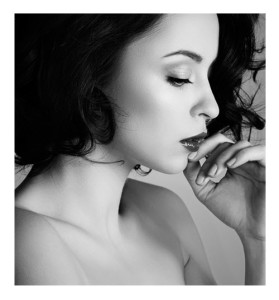 The announcer said: “Next up… a totally naked photo shoot.”
The announcer said: “Next up… a totally naked photo shoot.”
Naturally, I turned my head to look. Wouldn’t you?
Yes, I am a product of my culture.
I was listening to entertainment news on television. It was evening, and I was editing. By the time the commercial break was over, I was immersed in writing again and missed the segment. Most likely, the line about nakedness was a hook – an effective one at that – but I’m guessing the photos were of a celebrity as a baby, perhaps on the proverbial bear skin rug.
Then I had a flash – remembering billboards and commercials I saw in Europe many moons ago as a teenager. How surprising it was at first, and how natural it became over time – for example, seeing a nude body in the shower for a soap ad.
So why do we get so hot and bothered over nudity?
Naked and Vulnerable
It’s interesting to me that English offers us the nuance to capture the sensual aspects of the unclothed form in the word nudity, as well as elements of innocence or vulnerability in the word nakedness. As for getting hot and bothered, perhaps I should rephrase. In the right setting (and with the right person), we generally hope to find ourselves in that enviable condition, and ready for mutually enjoyable engagement.
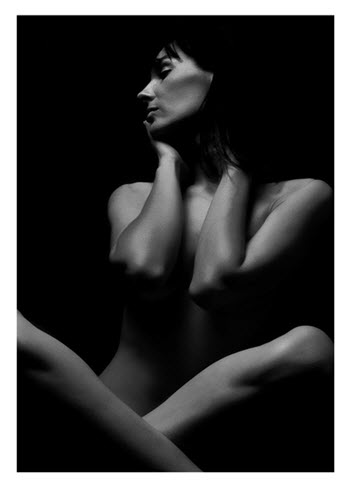 But most of the time, whether we’re talking about nakedness or nudity, we react to bared body parts like school children. We’re shocked or we’re curious; we’re comparative or we’re disapproving; we replay “nip slips” ad nauseum when they happen to our sports and media celebrities. Why is it that we’re so breast-obsessed?
But most of the time, whether we’re talking about nakedness or nudity, we react to bared body parts like school children. We’re shocked or we’re curious; we’re comparative or we’re disapproving; we replay “nip slips” ad nauseum when they happen to our sports and media celebrities. Why is it that we’re so breast-obsessed?
Are we drawn to the reality of other human beings revealed, in part because it is off limits?
Of course, sometimes nudity is purely about art. Whether drawing, painting, sculpture or photography, as observers, we are appreciative. Also, the more we see, the more the naked human form becomes “business as usual.” We are intrigued by the variations, but that’s about it.
I can only imagine that medical professionals are unfazed as hundreds or thousands of human parts pass through their days. Another example of business as usual.
Nudity in Advertising
We are all familiar with the expression that “sex sells.” And it does. We are sexual creatures. We respond to sexual stimuli. Beauty and sex appeal – however we define them – will grab us, and hold our attention.
Will we pay attention to the product or service?
That depends. Will we feel shamed into purchasing a product or service, based on some esteem-undermining combination of visual and verbal messages? By that I mean: If I don’t buy (magic) Product X, I will never look like (digitally altered) Person Y…
That also depends.
There’s little question that brands sometimes go too far (yes, a matter of opinion), and others use partial nudity to their marketing advantage.
I’m recalling topless Calvin Klein ads with the stunning Ms. Eva Mendez. Apparently breasts were a bit much for the American crowd. And as I remember, one version of the commercial was banned in the U.S.
But shouldn’t any advertising equation be about the bottom line? Did the campaign meet its objectives?
The Nude
Of course, we become desensitized to nudity depending on the circumstances. I’m thinking again of the billboards and television commercials I was accustomed to in Europe. I’m also thinking of nudists, to whom the rest of us must seem ridiculous with our ogling and our judgments.
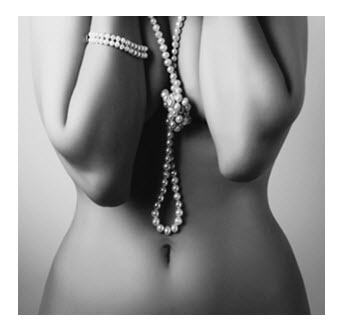 Having enjoyed a few tropical vacations in my twenties, with destinations taking me to French-influenced shores, topless beaches were a non-event. In short order, I paid no attention whatsoever to anyone’s body, and felt completely unselfconscious about my own.
Having enjoyed a few tropical vacations in my twenties, with destinations taking me to French-influenced shores, topless beaches were a non-event. In short order, I paid no attention whatsoever to anyone’s body, and felt completely unselfconscious about my own.
Where we seem to get into trouble, women in particular, is in the self-destructive comparisons that undermine confidence. We hold ourselves to unachievable standards, and remain convinced that our bodies aren’t good enough.
But good enough for what, exactly? Do we ever hazard answers to that question? Then do we assess their rationality?
Of course we know precisely where this self-deprecating attitude leads: We don’t feel comfortable in our skin; we don’t feel secure in our relationships; we worry that a partner will have a roving eye – for someone he (or we) may perceive as “better.”
What if we appreciated our bodies as they are, recognizing all they do for us? What if we worked to improve what we can – in a healthy and realistic way – without considering how we stack up next to Photoshopped and surgically enhanced versions of the “ideal” woman?
What if we just say no?
Loving Our Bodies
Of course, like many women, I enjoy gazing at the male figure. Beautiful biceps, muscular thighs, a well-developed (but not over-pumped) chest and back. Beautiful hands… These are, to me, both elegant and arousing.
Also like many women, I find it terribly unfair to see how well men age, relatively speaking. Even if they grow a modest pot belly, their toned arms, legs and butts make me wish for a little testosterone coursing through my system.
Recalling my own figure (before children), my body was curvy and my skin was satiny, but I never felt good enough. Worse – I tortured myself with non-stop diets, I never gave a thought to how I used my body, and I was always concerned with how it looked.
Isn’t this a tragic waste of time – this persistent feeling of not being good enough?
The exception? Periods of time when I lived in Europe, or on those faraway beaches.
As for my younger self, if only I appreciated my body then, the way I do now, in retrospect. And I must remind myself that 10 years into the future I may look back to this time and say the same: If only I appreciated my body then, the way I do now, in retrospect.
Easier said than done, I know. But it’s certainly worth a try, don’t you think? Not only for ourselves but for our partners and our children, who do not benefit from seeing (or hearing) us beat ourselves up.
This message is driven home to me whenever I hear a man disparage his body – an infrequent occurrence, yet somehow more striking – and I realize that what may bother him is immaterial to me.
So let’s say yes to embracing the bodies that serve us, including their imperfections. Let’s say yes to finding beauty in the nude form, in all its healthy variations. Let’s understand that nakedness is about vulnerability and potentially, it places us on a more level playing field. Surely this could lessen the likelihood of unhelpful comparisons, and enable us to enjoy ourselves – clothed or otherwise – in all the ways that truly count.
You May Also Enjoy
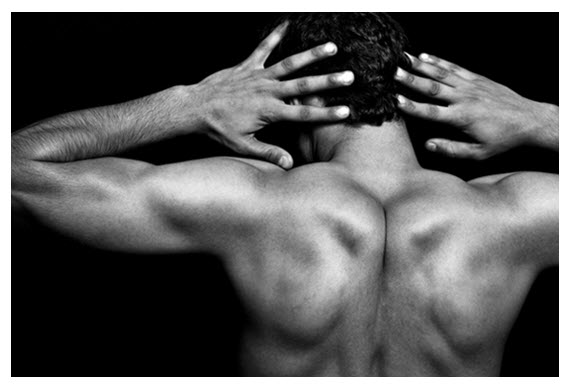
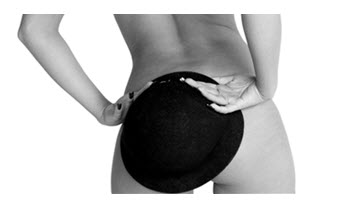
“So let’s say yes to embracing the bodies that serve us,” – Oh, how I try! But it truly is challenging for me to abandon comparison. Also, I make every effort to gain that perspective of what I will think of my current form in the future…I don’t want to miss this opportunity to appreciate what I’ve got without realizing it, as I did in my twenties. Gosh, what I wouldn’t give for THOSE thighs!
It is hard to abandon comparison, Missy, I agree. Not only are media and cultural influences everywhere, but so many of us live with a highly critical inner voice.
Oh yes, yes, yes! I’m away on a “sister’s trip” right now and we’re all in our 50s and talking about our aging bodies, what we’d like to have lifted, how we’re doing health wise and weight wise and feeling quite invisible down by the pool. There are so many adorable 20 and 30 year olds by the pools here in Palm Springs. And the men – old and young – for the most part – look great. And also lamenting that in Europe – there isn’t the same obsession with youthful bodies or perfect form. What is, after all, perfect form? A body that will move and give you pleasure, that tastes really good food and wine and a mind or sensitivity to savor it? We either embrace our bodies and appreciate them – or wallow in the inevitable aging that is perfectly natural and a blessing denied to many.
Yes! (And enjoy your visit!)
Near my city is a Women’s only Korean Spa. The specialty is the body scrub in a semi open room with the tables lined up next to each other and naked, lathered bodies on them. Just outside this semi enclosed room are the showers, the sauna, the steam room, and 4 pools of jetted water ranging from very hot to icy cold. In this room women wander from tub to tub, sauna to shower naked.
It is a melting pot of every kind of woman, every age beyond 13 (just took my 97 yo mother and our 70 yo friend there 2 weeks ago. And we had all been there before), every body type, every culture represented in a safe and healing space. We wear little hospital gown robes to the cafe where healthy Korean food is served and to walk between the tea room, and rooms for add on treatments like massages, facials, pedis and manis. But in the pool room we all walk, proudly, naked. We see tattoos, scars (I have many) and, on occasion, missing breasts.
I took my daughter there to celebrate her becoming a woman. Now she goes with me at least twice a year. I wanted her to see all the body types of women, to see that very few of us are perfect, to see that even with an imperfect body we can celebrate who we are and be comfortable in our skin.
The first time we went together, we sat in the cafe in our little gowns. She mentioned that it was the exact kind of gown I had worn in the hospital when I was so sick. Then she said, “This is sort of a spiritual hospital.” 13 and so wise.
That experience sounds like a gift to all of you, Lunaboogie.
When I was 16, I travelled through the then USSR. Because I was camping with a small group if students, getting clean wasn’t very convenient. In the cities, I would go to the banyas, the public baths. It was eye-opening and quite wonderful. Women of all ages, bathing, and in the sauna, naked and unselfconscious. All sorts of bodies. So body size/type/appearance virtually disappeared after awhile.
That sounds so beautiful! I wish I could take my 15 year old daughter and my almost menopausal 44 year old self there so we could keep to love, or just appreciate our bodies.
Yes! Wouldn’t it be lovely, KT? What an example Lunaboogie has shown us.
We’re all too obsessed with our bodies. Would that it were not so.